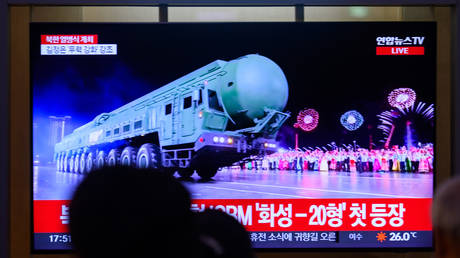
No matter how much Seoul denies North Korea’s nuclear status, it will not change the situation, according to the DPRK’s deputy foreign minister
North Korea has dismissed denuclearization of the Korean Peninsula as an unrealistic goal. This comes after South Korea urged China earlier this week to help in finding a solution to the nuclear issue.
In a statement carried by the Korean Central News Agency (KCNA) on Friday, the DPRK’s deputy foreign minister, Pak Myong Ho, said Pyongyang would “show with patience that denuclearization is a ‘pipedream’ which can never be realized even if [South Korea] talks about it a thousand times.”
He described Seoul’s repeated efforts to deny North Korea’s nuclear status as showing a “lack of common sense.”
Earlier this week, South Korean President Lee Jae Myung urged Beijing to play a “constructive role” in establishing peace and finding “a substantive solution to the Korean Peninsula nuclear issue.”
On the sidelines of the APEC summit on Saturday, Lee met with Chinese President Xi Jinping. Seoul reported that the two leaders discussed improving bilateral ties, while Lee “requested a constructive Chinese role to help realize the resumption of talks with North Korea.”
Lee has also told reporters that he would support renewed dialogue between US President Donald Trump and North Korean leader Kim Jong-un.
Trump said earlier this week that he would “love to see” Kim and indicated that he might leverage US sanctions if talks resume. During his first term, Trump became the first sitting US president to set foot in North Korea, meeting Kim three times from 2018 to 2019 to discuss denuclearization in exchange for economic and security guarantees, though no agreement was reached.
While a Trump-Kim meeting did not take place during the US president’s Asia tour this week, Kim said he is open to the idea and still has a “good memory” of Trump – though he has described US demands that North Korea abandon its nuclear weapons as “absurd.”
Pyongyang has insisted that its nuclear armed forces will “exist forever” as a means of defending its “sovereignty, territorial integrity and fundamental interests.” It has also accused the US of provoking instability and attempting to create an “Asian version of NATO” through its military cooperation with Japan and South Korea.




